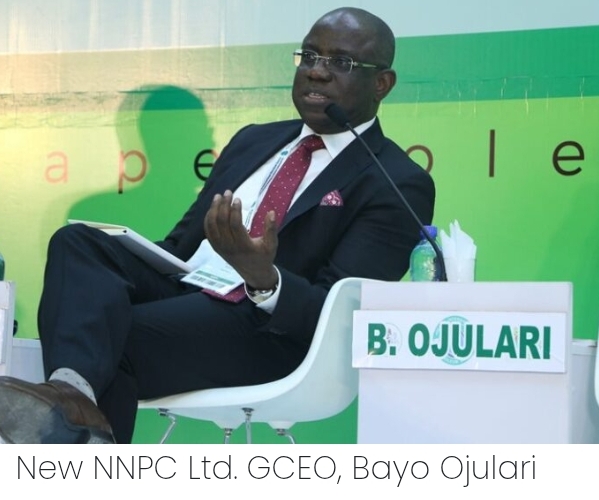Sunday May 18, 2025 |
The Socio-Economic Rights and Accountability Project (SERAP) has called on the Group Chief Executive Officer of the Nigerian National Petroleum Company Limited (NNPCL), Mr. Bayo Bashir Ojulari, to provide a full explanation on the alleged N500 billion the company failed to remit to the Federation Account between October and December 2024. Nigeria: Nigerian fashion
This follows a recent disclosure by the World Bank that the NNPCL remitted only N600 billion out of N1.1 trillion in revenue generated from crude oil sales and other income during the period under review—leaving a N500 billion shortfall.
In a Freedom of Information request dated 17 May 2025 and signed by SERAP Deputy Director Kolawole Oluwadare, the organisation urged Mr. Ojulari to identify individuals responsible, surcharge them accordingly, and refer the matter to the Economic and Financial Crimes Commission (EFCC) and the Independent Corrupt Practices and Other Related Offences Commission (ICPC) for investigation and prosecution.
SERAP also demanded that anti-corruption agencies be invited to probe the utilisation and location of the missing funds, stressing the need for full recovery and immediate remittance to the Federation Account.
“The Nigerian Constitution and the Freedom of Information Act grant the public the right to know the whereabouts of their commonwealth. The oil wealth of the country should be used for the benefit of all Nigerians—present and future,” SERAP stated.
The group expressed concern over what it described as NNPCL’s consistent failure to ensure transparency and accountability, noting that similar issues have been documented by both the Auditor-General of the Federation and the Nigeria Extractive Industries Transparency Initiative (NEITI).
“The missing N500 billion is not just a number—it represents lost opportunities to improve lives. It reflects a deeper systemic failure and a breach of public trust,” SERAP said, warning that failure to act within seven days of receipt or publication of the letter would result in legal action.
SERAP also cited various national and international legal frameworks—including the Nigerian Constitution, the UN Convention against Corruption, and the African Charter on Human and Peoples’ Rights—as binding obligations requiring NNPCL to ensure accountability in the use of public resources.
“The unremitted funds have further damaged the fragile economy, worsened the country’s fiscal deficit, and contributed to the denial of basic public goods and services to citizens during a severe cost of living crisis,” the letter added.
According to SERAP, ensuring the recovery and remittance of the missing funds is essential to restoring public confidence, combating corruption, and safeguarding economic and social rights in Nigeria.
Related posts
Categories
- Advertisements (1)
- Agriculture (44)
- Breaking News (26)
- Business (593)
- Crime (974)
- Education (315)
- Entertainment (128)
- Features (13)
- For The Records (43)
- Foreign News (1,179)
- Health (218)
- Home News (332)
- Interview (9)
- Judiciary (347)
- Lifestyle (140)
- Local News (111)
- National News (1,441)
- Opinion (26)
- Politics (991)
- Religion (155)
- Science and Technology (124)
- Security (673)
- Sports (875)
- States' News (805)
- Transportation (325)
- Uncategorized (10)

